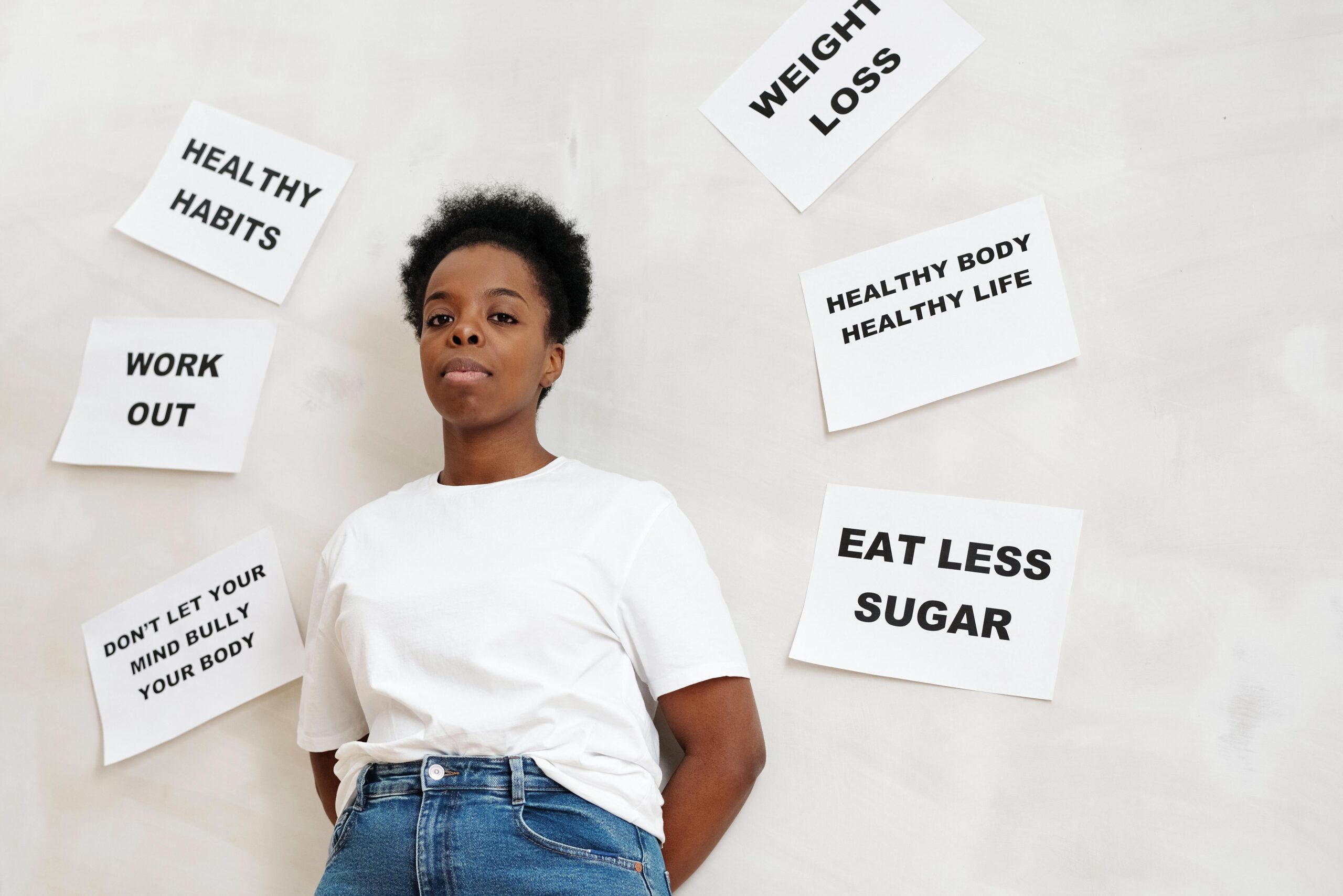7 Ways Our Beginner's Fear Holds Us Back
- Mindset and Habits
- August 22, 2024
- byCharlotte

Starting something new can be a daunting task for many of us, especially as adults. I cannot recall how many times I have said no to great opportunities because I did not feel comfortable with my skills (countless ski trips, dance parties, job opportunities even). Yet, despite the potential rewards, the beginner’s fear that goes with the unknown can often hold us back. Let’s be honest, starting something new… anything new as an adult can be a bit scary at times. It requires us to get out of our comfort zone, which most people do not want to do.
I am making it a point to be a forever beginner in many areas of my life as an adult, whether personal or professional. It teaches me so much beyond the mere topic or activity that I learn. I’ve shared some of those takeaways in this blog post. For now, let’s focus on what causes our beginner’s fear.
Why Does It Feel So Hard to Be a Beginner as an Adult?
It took me until my early 30s to consciously decide I would embrace the beginner mindset. While I am proud that I eventually understood the value of having this mindset across all areas of my life, I couldn’t help but wonder why it took me so long to build the confidence to do so. I took some time to reflect, and a few reasons became obvious, which I am sure will be relatable to many. Here are seven reasons why we might be scared of starting something new:
7 Ways Our Beginner's Fear Holds Us Back from Learning New Things
1. Comfort in Familiarity
From an evolutionary standpoint, Humans are more comfortable with what they’re familiar with. This instinct stems from the early days of human existence when survival depended on recognizing and sticking to what was safe and known. In ancient times, those who were cautious and wary of potential dangers in their environment were more likely to survive and pass on their genes.
Unfamiliar environments, animals, or food sources could present threats, making it natural for humans to prefer what they knew and understood. This ingrained tendency to stick with the familiar often prevents us from venturing into new territories, even when the new opportunity might offer great benefits or rewards. The Vector Impact explains it well in this article.
2. Impostor Syndrom and Gender Stereotypes
Gender-based issues present specific challenges. Men face their own struggles, which I can’t fully understand since I haven’t experienced them first-hand. One example is how some men have their masculinity or sexuality questioned for exploring artistic activities, which is ridiculous and must stop.
For women, we often limit ourselves due to impostor syndrome. It’s that voice making us doubt our place in certain spaces, telling us we’re less deserving than others. I know it all too well, and many can relate. It was loud when I launched my business or even started dancing. Impostor syndrome makes us compare ourselves to others, doubting our abilities. Its effect is real—hesitation to move forward due to a lack of confidence can prevent progress or improvement.
It often shows up in environments where we feel different from most peers like we don’t belong. This is why women tend to experience it more frequently than men, as we face strong biases, societal expectations, and discrimination. When we’re expected to fail at something simply because, you know… “women aren’t good at this,” we face two challenges: learning something new and overcoming others’ biases.
3. Beginner's Fear of Judgement
Deep inside us, whether we admit it or not, is a fear of being judged by others. We are social beings, and despite many mentors and coaches all over the internet encouraging us to only look inward and disregard others’ opinions, it is easier said than done! Starting something new can magnify this anxiety. It’s a good direction to strive to care less about what people may think of us and more about how we feel about ourselves, but it takes a lot of time to get there, and that’s not something that is spoken about so often.
Trying something unfamiliar places us in the spotlight, exposing us to the opinions, critiques, and sometimes harsh judgments of others. The beginner’s fear of making mistakes in front of others, or appearing inadequate, can be overwhelming and discouraging.
However, other people’s judgment is not something that should be rejected as a whole without seeing the benefits of it. After all, improvement partly comes from listening to constructive criticism. Not all criticism is constructive, but what if there were techniques that we could all work on to turn all opinions in our favor? You can find some concrete steps to overcome the fear of judgment that have worked for me in this blog.
4. Beginner's Fear of Failure and Limiting Beliefs

I tend to separate the fear of judgment from the fear of failure. The latter comes more from within, as it is usually rooted in our own limiting beliefs and lack of self-confidence. In short, our own insecurities often make us fear that we will not make it, while the judgment of others reinforces them. Fear of failure can be very debilitating in its most severe form, called Atychiphobia. You can read more about it in this detailed blog post by Calmer You. Sadly, our limiting beliefs tend to amplify as we grow older and become adults.
The more time passes, the more I keep thinking, “What’s the point of starting X activity? Usually, people who do it are already experts at it at my age. The younger you start, the better. It’s going to be much harder to learn as an adult.” And I am not alone! A study conducted in the US showed that “1 in 3 Americans were found to be scared of failure (31%)”.
While it is true that certain information gets harder to register as we grow older (and ok… maybe our bodies may also have more issues over time…), why not focus on the benefits of learning as an adult? A piano teacher who chose to focus on teaching adult beginners once told me: “I found adult beginners often have a misconception that they will struggle to learn when, in fact, they usually learn faster because they put all their mind to it.”
That was a major mindset shift for me. I may encounter more challenges learning than I did as a kid, but I fully decided as an adult what I wanted to learn. I know myself and what I like and want much more than I did as a kid, and that makes all the difference. Going all in, and knowing our strengths and weaknesses, is our superpower as adults. We learned how to learn as kids. Time to practice!
5. Beginner's Fear of Taking the First Step
Taking the first step in any new venture can feel overwhelmingly difficult, almost like standing at the base of a massive mountain with no map, no gear, and no idea where to even place your first foot. It’s not just about beginner’s fear—often, it’s the sheer confusion and uncertainty about where to begin. There’s an endless list of questions: What’s the right starting point? How do I know I’m doing it correctly? Do I need specific tools or preparation? It can feel paralyzing, like trying to figure out a completely foreign landscape without a guide.
This sense of being overwhelmed can be discouraging, making it seem as though the entire path is too steep or complex to even attempt. You find yourself stuck, not because you lack motivation, but because you simply don’t know what the first move should be. Fear not! I give you some actionable tips on how to take your first step here.
It’s this initial disorientation—feeling lost before the journey even starts—that can make taking that first step seem so daunting. But once you start, even with a small, tentative step, the path begins to reveal itself, and the mountain, while still tall, starts to feel climbable.
6. Beginner's Fear of Commitment

Commitment anxiety is another common barrier that makes it easier to say no than to dive into the unknown. The fear of commitment stems from a reluctance to bind ourselves to a new endeavor that could bring about anxiety, stress, or additional burdens. Many people fear that once they start something new, they may be trapped in a situation they cannot easily escape from, whether it’s a long-term project, a new job, or a significant lifestyle change.
This fear often manifests as procrastination, avoidance, or the inability to make decisions. We may worry about the sacrifices required, the time investment needed, or whether we will be able to see the commitment through to completion. As a result, this fear can prevent us from saying “yes” to opportunities that could enhance our lives and push us out of our comfort zones.
7. Expectations and Pressure
External and internal pressures can create a deep fear of not meeting expectations, both from others and from ourselves. Society, family, friends, and even colleagues often have certain expectations of us, and the fear of disappointing them can be a powerful deterrent. Internally, we may set high standards for ourselves, expecting nothing short of perfection. How many times have I felt discouraged from trying something new by this fear of not living up to expectations? I should be adding that most of the time, this pressure was only in my mind since I am lucky enough to be surrounded by supportive family and friends. It’s a reminder that we often imagine obstacles that don’t actually exist and that the support we need is often already there, waiting for us to acknowledge it.
Have you faced similar fears or challenges when starting something new? I’d love to hear your thoughts! Feel free to share your experiences in the comments below, and if this resonated with you, don’t hesitate to share it with others who might relate.
If you want to read more about ways to overcome the beginner’s fear of learning something new, make sure you read more about my actionable tips to take the first step into anything new.
More Related Blogs

Life as a Multipotentialite: Why You Don’t Need To Specialize
Are you someone with a wide range of interests and abilities, never satisfied with focusing on just one path? If...
Read More
7 Ways Our Beginner’s Fear Holds Us Back
Starting something new as an adult can feel exciting—but let’s be honest, it’s also scary. From impostor syndrome to the...
Read More
10 Tips To Take the First Step in Starting Anything New
The first step is always the hardest part of any journey but it’s also the most powerful ✨. In this...
Read More
7 Strategies To Overcome the Fear of Judgment
7 Strategies To Overcome the Fear of Judgment When Starting Something New Mindset and HabitsAugust 28, 2024byCharlotte Ever feel paralyzed...
Read More
How To Overcome Imposter Syndrome as a Multipotentialite
How To Overcome Imposter Syndrome as a Multipotentialite Mindset and HabitsSeptember 23, 2024byCharlotte Do you sometimes feel like you’re constantly...
Read More
5 Small Habits That Will Change Your Life
Small habits can be life-changing! Forget overwhelming resolutions—lasting change starts with simple, actionable steps. Ready to transform your life?
Read More
Feeling Like a Failure: Lessons Learned to Bounce Back
Failure doesn’t define you—it teaches you. Bounce back stronger with lessons learned, rebuild confidence, and turn self-doubt into resilience!
Read More
10 Unconventional Lessons I’ve Learned Failing A Business
Discover the unconventional lessons, hard-won wisdom, and strategies I learned from starting—and failing—my startup as a female entrepreneur.
Read More
Is Kindness the Key to Your Growth? A Lifeline For Beginners
Kindness is bold, despite what society tells us. It helps beginners grow, connect, and feel safe to overcome their fears...
Read More
How to Overcome Analysis Paralysis and Imposter Syndrome
Struggling with overthinking, perfectionism, or burnout? Learn two simple, science-backed tools to break free from analysis paralysis and start taking...
Read More